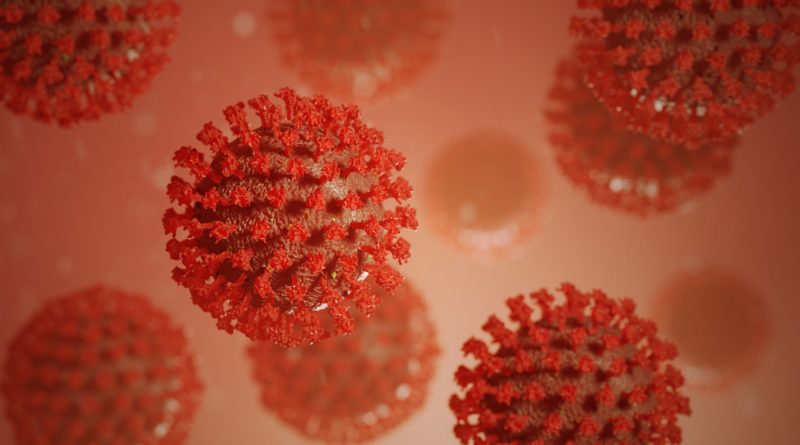Dallas County Reports High COVID-19 Hospitalizations
As officials continue to monitor the state of the COVID-19 pandemic and the world eagerly races to get a vaccine, information is flying left and right and there is much to keep up with. Here are today’s bullet points:
- Dallas County reports 1,027 additional COVID-19 cases, 16 more deaths;
- Data found three percent increase in mobility on July 4 than Memorial Day;
- Metrocare braces for increased call loads as pandemic cases spiral upward.
Dallas County Reports 1,027 Additional COVID-19 Cases, 16 More Deaths
Dallas County Health and Human Services Thursday reported another increase in new COVID-19 cases at 1,027 additional positive cases, bringing the total case count in Dallas County to 37,996, as well as an additional 16 deaths.

The 16 deaths include a man in his 30’s, two men in their 40’s, a man in his 50’s, four men in their 60’s, four men and one woman in their 70’s, a women in her 80’s and two women in their 90’s. 13 of the 16 had underlying high risk health conditions, according to officials.
About a third of the total 501 deaths reported to date have been associate with long-term care facilities.
More than half of COVID-19 cases reported in Dallas County after June 1 are between 18 and 39 years old. An increasing proportion of cases continues to be paired with large recreational/social gatherings since early June, including house gatherings and parties.
More than two-thirds of cases that require hospitalization have been under the age of 65. About half of these cases do not have high-risk health conditions. Diabetes has been an underlying high-risk health condition reported in about a third of all hospitalized patients with COVID-19.
“Today we’re again reporting over 1,000 new cases, for the 14th day in a row, another 16 lives lost to COVID-19, and we also have a near record high number of individuals currently hospitalized for COVID-19. There continues to be a rampant community spread in Dallas County. I know this summer looks different than what we all imagined months ago and there’s uncertainty as to what our community and daily life will look like going forward. Please know that we are working hard and following the advice of the medical and public health experts so that we can keep our economy moving and keep as many people as healthy as possible. But we all must do our part. I ask that you please wear your mask when around others outside your household, and even when wearing your mask, maintain six foot distance as well. Together, we’ll get through this,” said Dallas County Judge, Clay Jenkins.
Dallas Mayor Eric Johnson shared Thursday bed and ventilator capacity statistics as reported by 25 hospitals. Of 5,962 total beds, 4,208 (71%) were occupied, of 870 total ICU beds, 645 (74%) were occupied, and of 961 total ventilators, 406 (42%) were in use.
Data Found Three Percent Increase in Mobility on July 4 Than Memorial Day
Parkland Center for Clinical Innovation (PCCI) found that people moved around more on the July 4 weekend—three percent more than they did on Memorial Day.
“That data comes with some caveats,” Matt Goodman wrote at our sister publication, D Magazine. “PCCI, which is processing and presenting coronavirus data for Dallas County’s health department, can’t say what all those people were doing. We don’t know where they were going or whether they were social distancing or wearing a mask. But more people left their homes over the July 4 weekend compared to Memorial Day; travel was actually comparable to July 4 of 2019, before we knew what COVID-19 was.”
COVID-19 hospitalizations jumped by 35 percent only two weeks after Memorial Day in North Texas, increasing from 521 to 705. According to the data from the Texas Department of State Health Services, there was a 255 percent increase in COVID-19 hospitalizations in our 19-county region. That is a total of 1,854 hospitalizations by July 15.
July 4 and Memorial Day are not the only days that public health experts have seen a number change. Other holidays like Easter and Mother’s Day have also shown spikes. Saturday will be two weeks after July 4, data will soon show the if there was an effect on COVID-19 cases or not.
Metrocare Braces for Increased Call Loads as Pandemic Cases Spiral Upward
Because of spiraling COVID-19 cases all across Texas and the country, Metrocare, the largest provider of mental and behavioral healthcare in Dallas County, is bracing for increased calls for assistance.
Texas Governor Greg Abbott expects COVID-19 cases and deaths to surge through July. As a result, he has expanded his ban on elective surgeries in Texas counties to help free up available hospital beds and resources. Dallas County is one of the 100 plus counties on the list.
“With more questions than answers,” said Metrocare’s Chief Medical Officer Dr. Judith Hunter, “many people may be feeling anxious and depressed because they are concerned about their jobs or even putting food on the table. Sadly, people often can’t or are afraid of attending church or family events that might otherwise help deal with these challenges. The mounting pressures may seem like too much to handle for some people.”
With the rising COVID-19 cases, Metrocare advises staff members and current patients, to brace for the continuous and future mental health impacts of the crisis. In addition, experts are informing family members and professionals to watch for symptoms brought on by COVID-19.
These symptoms include:
- Appearance of being emotionally numb or exceptionally agitated, irritable or anxious
- Significantly decreased or increased sleep
- Use of drugs or increased use of alcohol
- Feelings of hopelessness or loss of control
- Talk of ending one’s life
- Threats about suicide should definitely be taken seriously.
“That’s a clear sign of trouble,” said Dr. Hunter. “Don’t ignore it. Often people who are suicidal will drop hints that really represent cries for help. That’s definitely the time to get professional assistance. Call the 24/7 Crisis Hotline 866-260-6000 for immediate support.”
If you are in need of mental health services, please call Metrocare’s Coronavirus Support Line at 214-743-1215.









